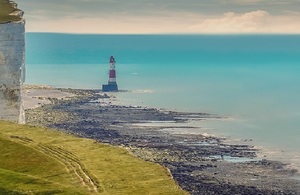Iran should take this opportunity to conclude the deal while it is still possible: E3 at Security Council
The Security Council remains seized of the threat to international security from Iran’s continued nuclear escalation. Iran’s nuclear programme is now more advanced than at any point in the past.
Iran has been taking unprecedented steps to accelerate the pace of its nuclear programme in the past three years and continues to escalate unabatedly. Some of the most serious steps have been taken during the negotiation process aimed at returning Iran to full implementation of the Joint Comprehensive Plan of Action (JCPoA) and the U.S. to the deal.
Intensive diplomatic efforts to restore the JCPoA have resulted in a viable deal being on the table since early March. We regret that up until now Iran has refused to seize this diplomatic opportunity and continued its nuclear escalation
Recently, Iran announced the installation and use of additional powerful advanced centrifuges and the removal of the International Atomic Energy Agency’s JCPoA-related surveillance and monitoring equipment. This occurs in the deeply concerning context of Iran continuing to increase its stockpiles of uranium enriched at 20% and 60% to unprecedented levels. The IAEA received its mandate to verify and monitor JCPoA implementation directly from the UN Security Council. Iran’s complete termination of key JCPoA-related transparency measures is therefore a particularly negative, counterproductive and provocative step, which this Council cannot remain silent on.
Iran’s actions raise further obstacles for Iran to return to full implementation of its nuclear-related commitments under the JCPoA, and to restore the Agency’s ability to provide assurance of the peaceful nature of Iran’s nuclear programme.
Iran’s actions are rapidly unsettling the balance of the package we had negotiated over many months to restore the JCPoA and closing the window for an immediate diplomatic solution. The impact on international security and the international non-proliferation regime of such an outcome would be grave and long lasting.
We call upon Iran to stop and reverse its nuclear escalation, return to full cooperation with the IAEA and seize without further delay the offer on the table, which would benefit the Iranian people and nation.
We express full support for the efforts of the JCPoA Coordinator to restore the JCPoA. Iran should take this opportunity to conclude the deal, while it is still possible. Unfortunately, it is our understanding that at the meeting which ended yesterday in Doha, Iran once again refused to seize the opportunity and, instead, made new extraneous and unrealistic demands.
Today, the Security Council also will discuss key developments of Iran’s missile programme, which are inconsistent with UN Security Council resolution 2231. The Council will call upon Iran not to undertake any activity related to ballistic missiles designed to be capable of delivering nuclear weapons, including launches using such ballistic missile technology. Only a few days ago, Iran conducted another test of a space launch vehicle, which contains dual use technology that can be used to construct long-range and intercontinental ballistic missiles. We urge Iran to refrain from such provocative actions. We strongly condemn Iran’s continued destabilising activity in the region and we call upon Iran to stop all ballistic missile activities and proliferation inconsistent with UNSCR 2231 and other UNSC resolutions.
We also fully support the efforts of the Secretary General to examine and report any evidence of transfers of items, materials, equipment, goods and technology or related services inconsistent with UNSCR 2231.

